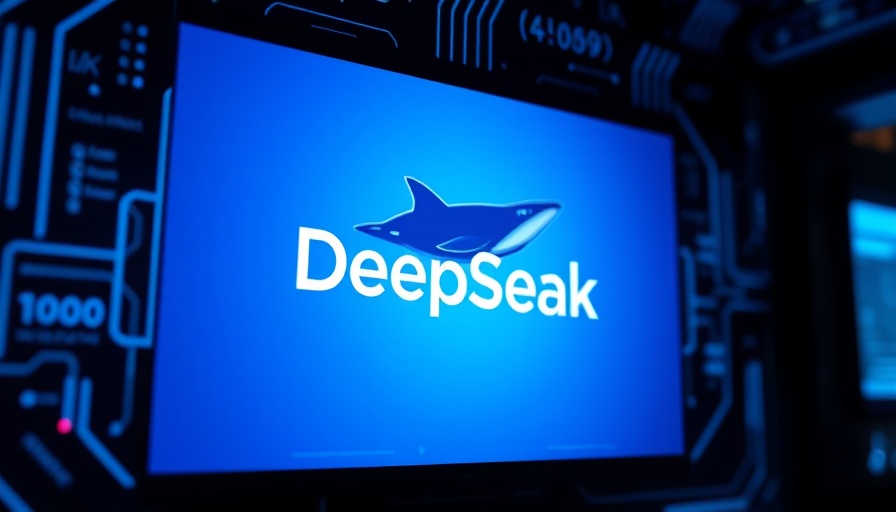
The Rise of DeepSeek: A New Era in Chinese AI
In just a few short months, DeepSeek, a nascent artificial intelligence startup, has captured headlines and gained global recognizability with its advanced AI capabilities, particularly its reasoning model, R1. This sudden surge in popularity has warranted increased government scrutiny, particularly from the Chinese authorities, keen to protect what they perceive as a valuable asset to their national tech ecosystem. Reports indicate that the Chinese government is now closely monitoring DeepSeek, implementing tighter restrictions that reflect the delicate balance between fostering innovation and ensuring national security.
Deep Government Oversight Reshapes Startup Landscape
According to recent revelations from The Information, DeepSeek employees face significant travel restrictions as part of these new government measures. The company has taken it a step further, with its parent organization, High-Flyer—a quantitative hedge fund—holding onto employees' passports to enforce these limitations. The restrictions are part of a broader initiative where the Chinese government has instructed AI professionals and entrepreneurs to remain wary of international travel, particularly to the United States, out of fear of losing critical trade secrets.
Global Reactions: Security Concerns Emerge
Outside of China, DeepSeek's ascendance has not gone unnoticed, with various governments instigating bans on the application over security concerns. According to references from both The Wall Street Journal and Reuters, reports surfaced of potential bans in the U.S. on government devices due to fears regarding user data handling. Countries including Australia, Taiwan, and Italy have already enacted prohibitive measures against DeepSeek, citing information security risks attributed to the Chinese company's data practices.
The Impact of National Security on Startup Innovation
These governmental actions underscore a pivotal segment of today's global startup culture, where innovation is increasingly viewed through the prism of national security. The potential for DeepSeek to be a tool for data collection raises red flags among government officials concerned about foreign influence in critical sectors. The Australian government, for example, labeled the AI platform an "unacceptable risk" and moved to purge it from all governmental devices. This trend compels emerging tech startups not only to innovate but to navigate a labyrinth of regulatory scrutiny, which could shape their operational policies moving forward.
DeepSeek Amidst a Global Tech Struggle
The Chinese government’s initiative to protect DeepSeek highlights a national strategy to encourage homegrown tech giants in a competitive global market. However, it also lays bare the dichotomy of tech innovation and security, challenging startups to balance growth aspirations with the overarching need for compliance in a geopolitically charged environment. As foreign governments raise concerns about data transparency and potential espionage, the narrative around new tech companies like DeepSeek will likely become a critical focal point of national and international discourse, especially for those interested in the evolving world of startups.
Harnessing Opportunities amid Challenges
For entrepreneurs aiming to navigate this complex landscape, several key takeaways can be useful. Understanding regulatory environments becomes paramount, which is where incorporating a business startup guide or consulting with a business startup mentor can provide valuable insights. In addition, tapping into government resources like business startup grants can assist in offsetting costs as innovators seek to build in compliance rather than at odds with governing laws. Furthermore, awareness of business startup trends allows startups to remain agile in adapting to changing regulations, ensuring their competitive edge is not compromised.
Looking Ahead: The Future of DeepSeek and Other Startups
As DeepSeek continues to operate under the watchful eye of the Chinese government, its journey reflects broader themes in the startup ecosystem—a narrative steeped in innovation, sacrifice, and complex international dynamics. Entrepreneurs inspired by this scenario might consider how to secure their startups not only in terms of customer acquisition but also data governance. Armed with knowledge about business startup costs and the necessity of strategic positioning in the market can enable startup enthusiasts to formulate robust plans that preempt obstacles posed by regulations.
 Add Row
Add Row  Add
Add 



Write A Comment